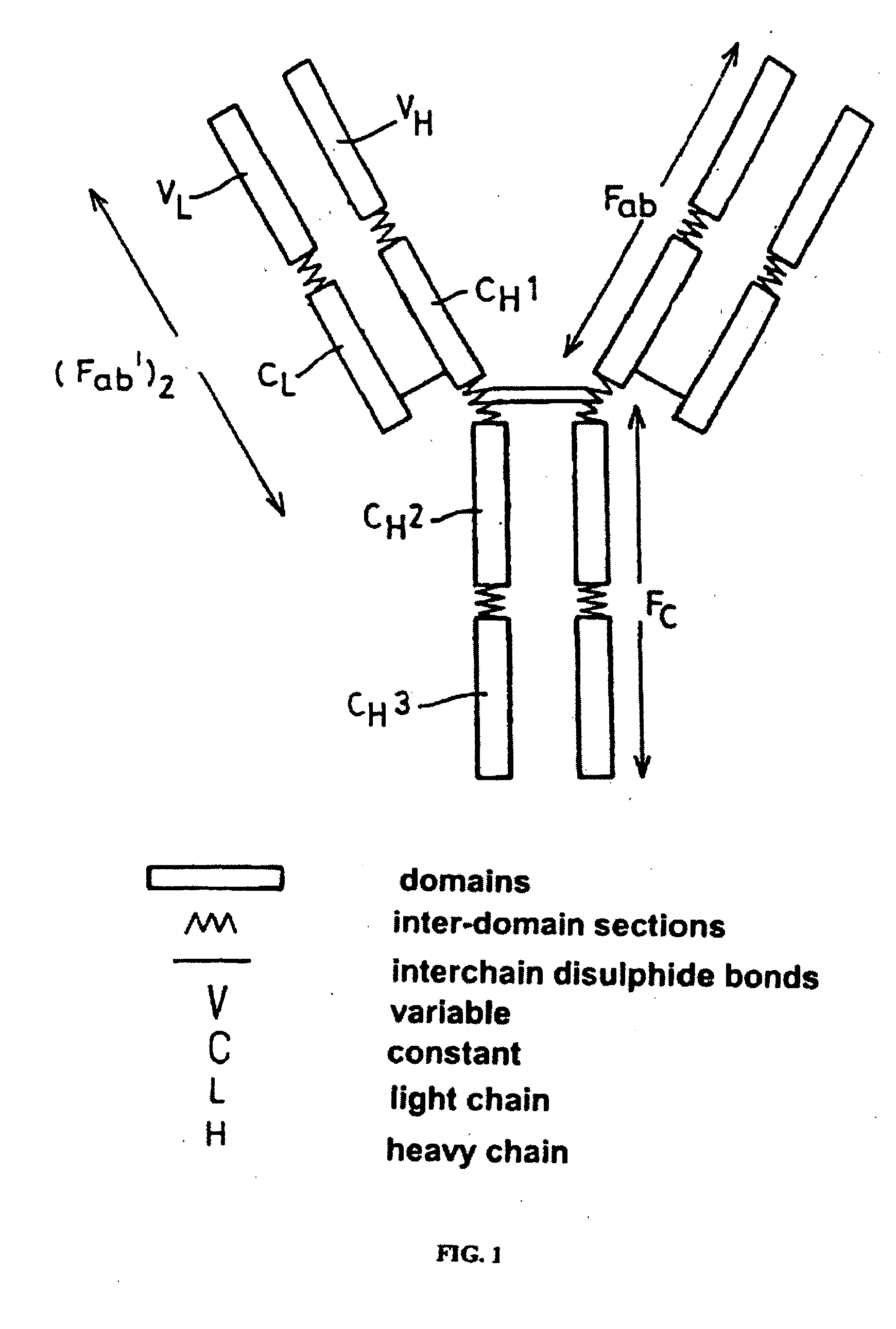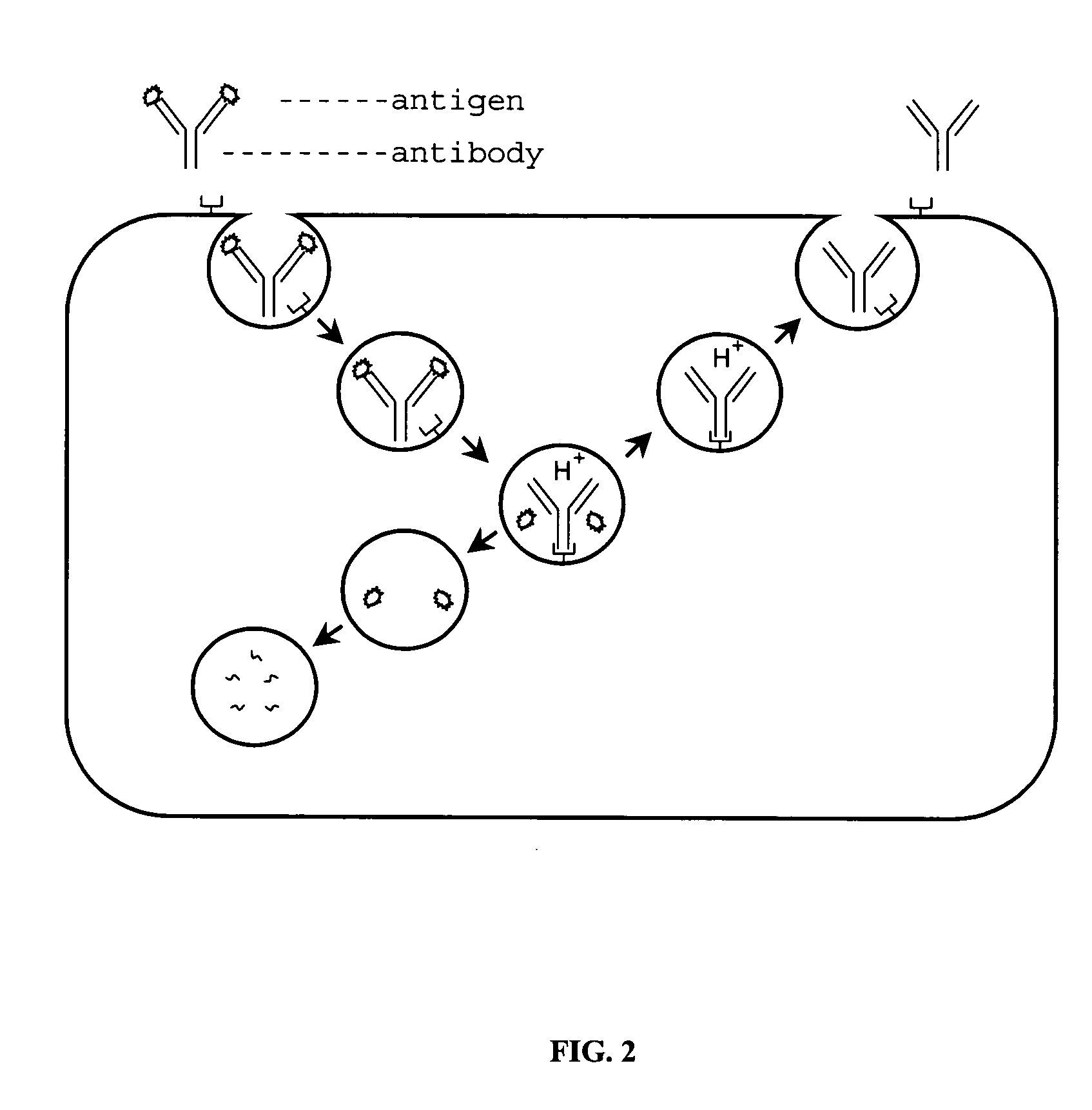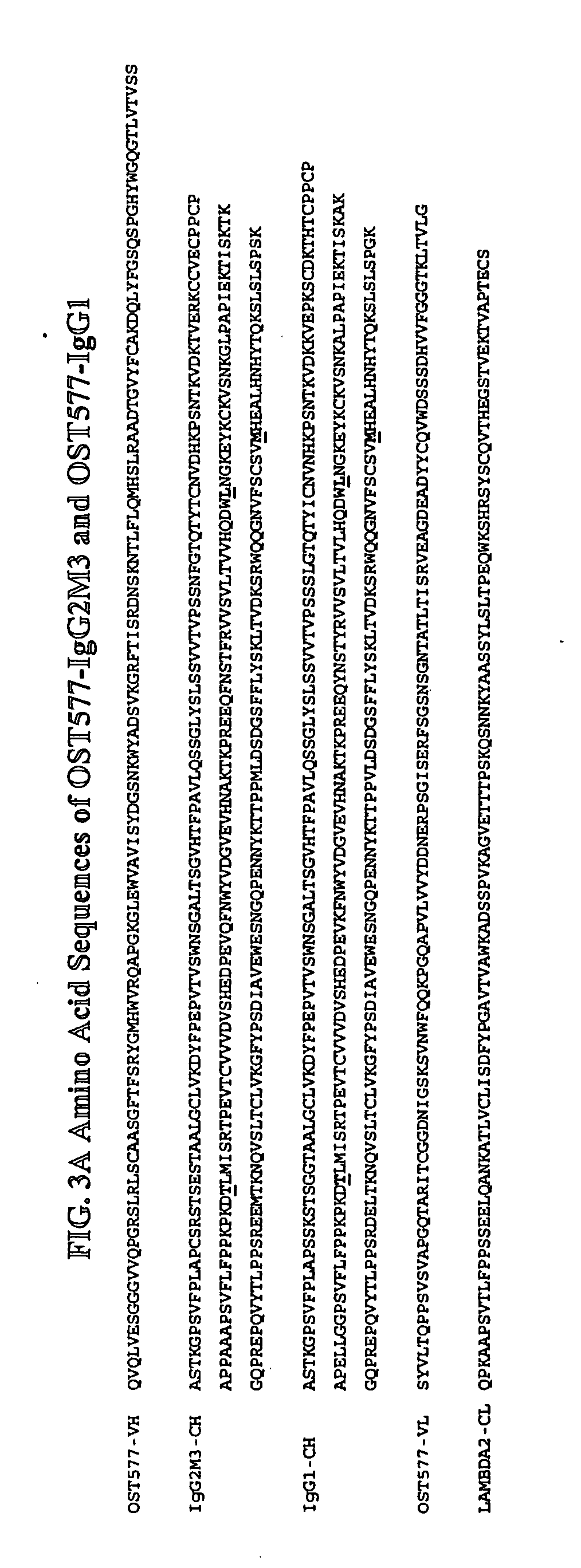Alteration of FcRn binding affinities or serum half-lives of antibodies by mutagenesis
a technology of mutagenesis and binding affinity, applied in the field of immunology and protein engineering, can solve the problems of no experimental support provided for mutations, no mutants proposed by martin et al. were constructed or tested for binding to fcrn, etc., and achieve the effects of reducing serum half-life, and reducing fcrn binding affinity
- Summary
- Abstract
- Description
- Claims
- Application Information
AI Technical Summary
Benefits of technology
Problems solved by technology
Method used
Image
Examples
example 1
[0223] This example describes the antibody expression vectors used in the present invention.
[0224] The components of the heavy chain expression plasmid pVAg2M3-OST577, a derivative of the M3 variant of pVg2.D.Tt (Cole et al., J. Immunol. 159:3613-3621 (1997)), are as follows. As shown in FIG. 5A, proceeding clockwise from the EcoRI site, the heavy chain unit begins with the human cytomegalovirus (hCMV) major immediate early (IE) promoter and enhancer (Boshart et al., Cell 41:521-530 (1985)) as an EcoRI-XbaI fragment. The hCMV region is followed by the OST577 VH region as an XbaI fragment, including signal sequence, J segment, and splice donor sequence. The VH region is followed by a modified genomic DNA fragment containing the human gamma-2M3 heavy chain constant region (Cole et al., op. cit.) as an XbaI-BamHI fragment, including the CH1, hinge (H), CH2, and CH3 exons with the intervening introns, part of the intron preceding CH1, and a polyadenylation (polyA) signal for mRNA proce...
example 2
[0230] This example describes the plasmids used in the present invention.
[0231] The OST577 heavy and light chain cDNAs were cloned in their entirety by PCR from a trioma cell line expressing human monoclonal anti-HBV antibody OST577 (Ehrlich et al., op. cit.). The heavy and light chain variable regions were converted by PCR into miniexons, flanked by XbaI sites at both ends, comprising the signal sequences, V, (D), and J segments, splice donor sequences, and a portion of the corresponding introns, as outlined in Co et al., supra. The expression vector pVAg2M3-OST577 (see FIG. 5A), a derivative of the M3 variant of pVg2.D.Tt (Cole et al., op. cit.), was constructed by replacing the XbaI fragment containing the OKT3-VH miniexon with the OST577-VH miniexon. Then the PciI-FspI fragment containing the bacterial replication origin was replaced with the corresponding PciI-FspI fragment from pUC18 (Yanisch-Perron et al., op. cit.) to increase the copy number of the vector in bacterial host...
example 3
[0239] This example describes mutagenesis of the Fc region of the human γ2M3 heavy chain gene.
[0240] Molecular Modeling:
[0241] An initial model of the human Fc / FcRn complex was generated based on a low-resolution crystal structure of the rat Fc / FcRn complex (Burmeister et al., Nature 372:379-383 (1994); RCSB protein databank code 1FRT). First, the rat β2m of the complex was replaced by superimposing the human β2m taken from a high-resolution crystal structure of the human histocompatibility antigen HLA-A2 (Saper et al. J. Mol. Biol. 219:277-319 (1991); RCSB code 3HLA) in the same orientation as that of the rat β2m in the complex. Then, the alpha chain of the rat FcRn was replaced by superimposing the human alpha chain taken from a high-resolution crystal structure of human FcRn (West and Bjorkman, Biochemistry 29:9698-9708 (2000); RCSB code 1EXU) in the same orientation as the rat alpha chain in the complex. Next, the rat residues in the Fc of the complex were replaced with the co...
PUM
| Property | Measurement | Unit |
|---|---|---|
| Therapeutic | aaaaa | aaaaa |
| Affinity | aaaaa | aaaaa |
Abstract
Description
Claims
Application Information
 Login to View More
Login to View More - R&D
- Intellectual Property
- Life Sciences
- Materials
- Tech Scout
- Unparalleled Data Quality
- Higher Quality Content
- 60% Fewer Hallucinations
Browse by: Latest US Patents, China's latest patents, Technical Efficacy Thesaurus, Application Domain, Technology Topic, Popular Technical Reports.
© 2025 PatSnap. All rights reserved.Legal|Privacy policy|Modern Slavery Act Transparency Statement|Sitemap|About US| Contact US: help@patsnap.com



